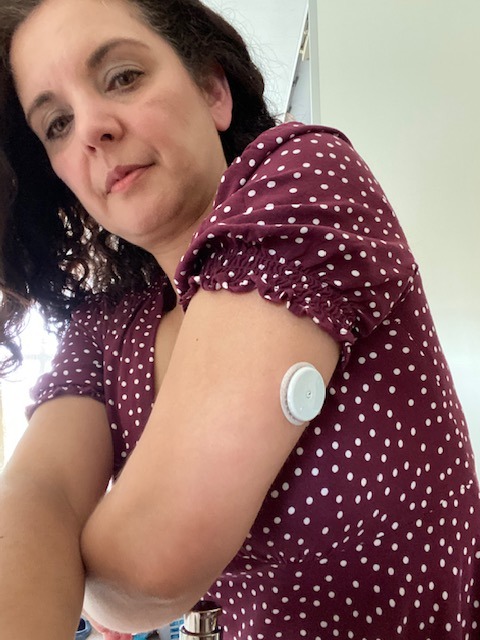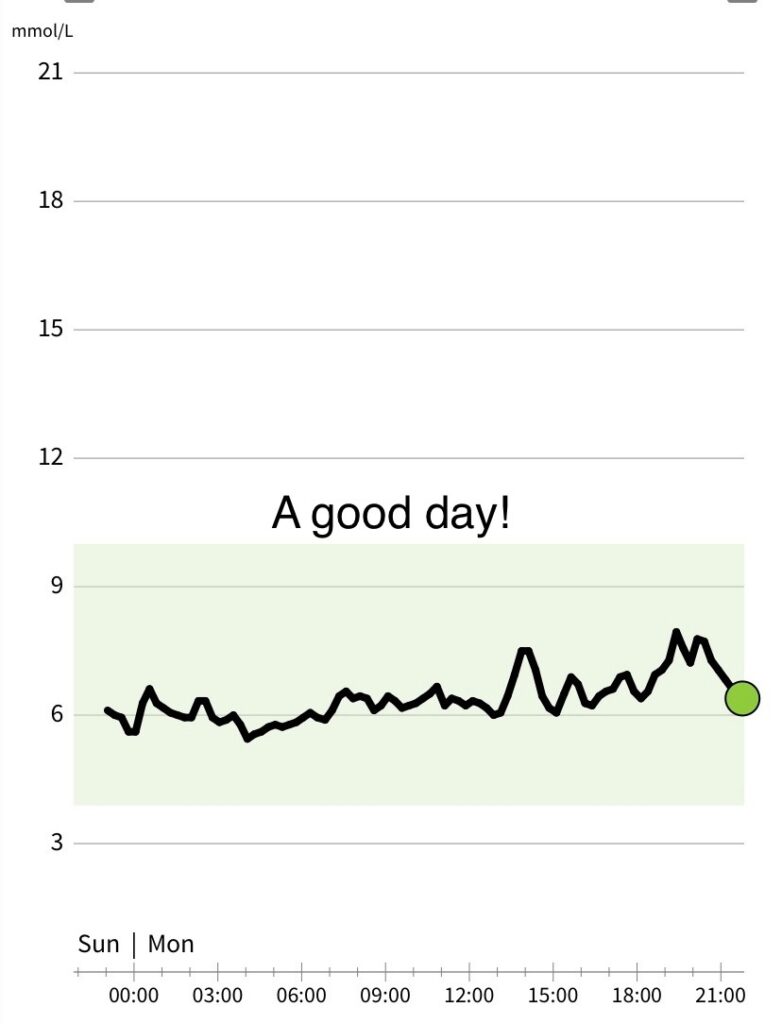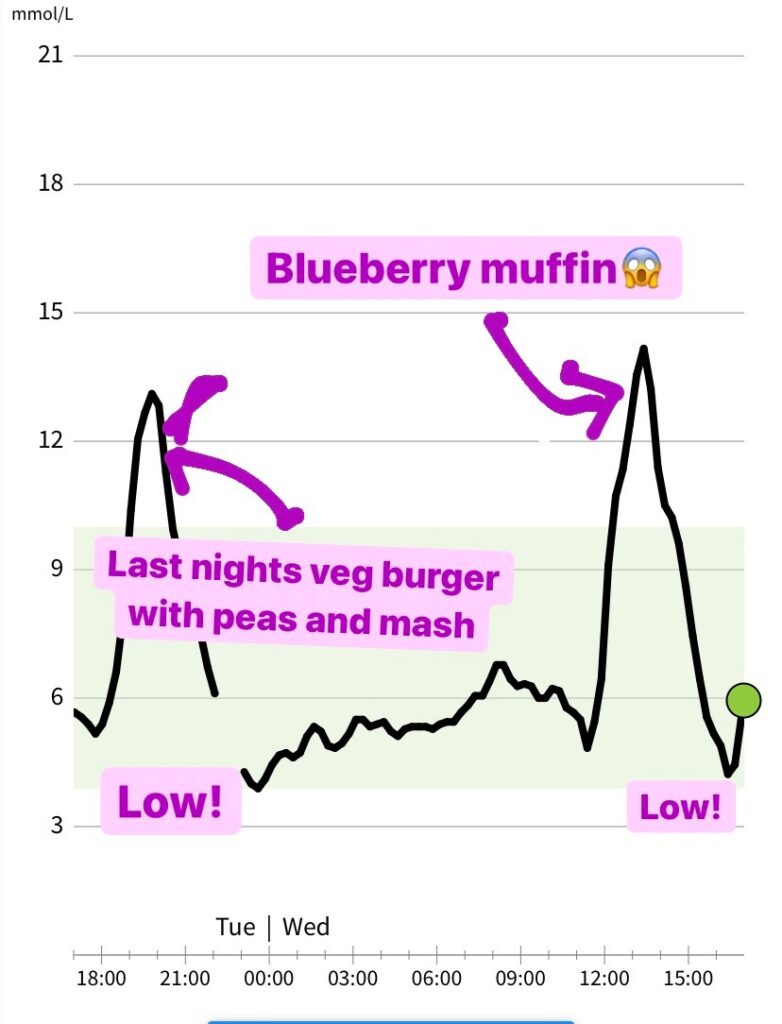By Helen James, Registered Nutritional Therapist
Do you or anyone you know have diabetes? In the UK and other western populations type 2 diabetes mellitus is a growing to near epidemic proportions. It is closely linked to other lifestyle diseases such as obesity, heart disease, high cholesterol, gout, fatty liver, cancer, and dementia.

As a nutritional therapist, I am trained to look at the body in terms of functional medicine. What does the body need to carry out it its functions, what symptoms are due to imbalances in these systems?
I came into my profession from a love of food, and especially sugar I wanted to know how food affects the body. I wanted to learn healthier ways of enjoying food.
I had a wake-up call when my love of sugar contributed to an imbalance in my hormones and led to blood transfusion. I also have a genetic risk for diabetes. I had to change my habits. That was nearly 10 years ago now but knowing my disposition and having listened to my body for all that time, I also know that even my fairly healthy diet was still affecting my energy and mood. Studying nutrition enabled me to make better food choices and the research shows that people handle sugar, including sugar from the breakdown of carbohydrates, very differently. A study done by Zeevi et al. 2015, showed that some people can have large response from eating brown rice, whilst only showing a small response from eating ice-cream!
Simply speaking type 2 diabetes is an imbalance in how the body handles sugar. The body breaks down sugar and carbohydrates into glucose. Glucose is a fuel that the body uses to make energy. Energy for movement and energy needed to function. Too much glucose circulating in our blood is bad, insulin is the sugar storage hormone which moves glucose from the blood into our cells. We can get tested by the doctors to see how healthy our overall sugar management is. The test marker called HbA1c is used to diagnose diabetes and prediabetes. The thing is you can have a normal test result but still not manage blood sugar throughout the day. This is called insulin resistance i.e. the body produces more and more insulin hormone to manage glucose and insulin resistance leads to prediabetes. The good news is that with some diet and lifestyle changes insulin resistance is reversible.
So, what are the symptoms of a dysregulated blood sugar/glucose response?
- cravings
- fatigue
- irritability
- headaches
- low mood
- brain fog
- lethargy
- dizziness
- weakness
- accelerated ageing
- insomnia
Poor blood sugar management may contribute to worse menopause symptoms, worse chronic fatigue, and worse fibromyalgia symptoms.

Who may be at risk of bad sugar management?
- Anyone with a high sugar diet – we are seeing more and more children with type 2 diabetes
- Anyone over the age of 40 (age related)
- Women in peri-menopause, the changes in sex hormones impact blood sugar regulation
- Women with polycystic ovary syndrome (PCOS), the imbalance in sex hormones fuels poor blood sugar management
- Anyone with an eating disorder (in the past or present)
So, in April 2022, I decided to wear a continuous glucose monitor for 2 weeks to observe my blood sugar management. My last blood tests in September 2021 were normal, so I knew I wasn’t diabetic or prediabetic.
I can’t say that I was overly shocked with the results – I had a few tell-tale signs and symptoms (see the above list), but I didn’t think the results were going to be as bad as they were due to my ‘healthy diet’
What did I find out?
- Porridge, even when loaded with nuts and seeds is not a good breakfast for me. I used to get tired after eating it and was hungry again after a couple of hours.
- Oat milk in my lattes raises my blood sugar over the healthy limit. I have now swapped to unsweetened nut milks – cashew is my current favourite.
- My favourite chickpea and sweet potato curry with brown rice for dinner gave me a large glucose spike followed by a low blood sugar reading at night. This explains my 3 am waking.
- My best meals in terms of good blood sugar management are based on protein, healthy fats, and non-starchy vegetables
- A blueberry muffin is of course not going to be good for me! But the huge glucose spike affected the readings for the whole day regardless of what I ate. It was like a blood sugar rollercoaster.

Why is this important to learn?
A ‘downer’ after a glucose spike activates our stress hormones. Imagine if this is happening all day long every day because of the food we eat. Chronically elevated stress hormones may cause inflammatory conditions in the body such as high blood pressure, raised cholesterol, weight gain/ obesity, heart disease, cancer as previously mentioned plus increased anxiety levels.
What YOU can do to reduce your risks?
Be brave and choose foods that are good at stabilising blood sugar throughout the day, I say be brave as this may mean sacrificing some of your daily pleasures like biscuits, cakes, scones, and other white starchy carbohydrates including bread, breakfast cereals and pastry based foods. These foods may be hard to give up and some people say that they are addictive. Eating more protein and healthy fats like avocados, olives, nuts and seeds is very satiating and keeps cravings at bay. Having the odd treat will not do any harm but one treat may lead to another and another and we may find ourselves back at square one. Holidays and recent lockdowns have shown that breaking healthy routines can have detrimental effects on our health and our weight. Therefore, mindset and the way we think of food is important. For many of us food has become more than just fuel or nutrition, it is a way of controlling or numbing difficult emotions. We may eat to feel better in our heads rather than in our bodies. Identify and acknowledge if you do this, and then maybe come up with other ways of feeling good such as spending time with friends, in nature, doing some physical movement, listening to music etc. We are complex beings and sometimes we may need a helping hand with changing our habits, learning about nutrition, or seeking help for our mental wellbeing.
Other resources
https://www.facebook.com/groups/2036349196627516/?ref=pages_group_cta

